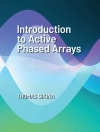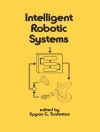Der MHI e.V. ist ein Netzwerk leitender Universitätsprofessoren aus dem deutschsprachigen Raum, die sowohl grundlagenorientiert als auch anwendungsnah in der Montage, Handhabung und Industrierobotik erfolgreich forschend tätig sind. Die Gründung der Gesellschaft erfolgte im Frühjahr 2012. Der MHI e.V. hat derzeit 20 Mitglieder, die über ihre Institute und Lehrstühle zurzeit ca. 1.000 Wissenschaftler repräsentieren.
Die übergeordnete Zielsetzung des MHI e.V. ist die Förderung der Zusammenarbeit von deutschsprachigen Wissenschaftlerinnen und Wissenschaftlern untereinander, sowie mit der Industrie im Bereich Montage, Handhabung und Industrierobotik zur Beschleunigung der Forschung, Optimierung der Lehre und zur Verbesserung der internationalen Wettbewerbsfähigkeit der deutschen Industrie in diesem Bereich.
Das Kolloquium fokussiert auf einen akademischen Austausch auf hohem Niveau, um die gewonnenen Forschungsergebnisse zu verteilen, synergetische Effekte und Trends zu bestimmen, die Akteure persönlich zu verbinden und das Forschungsfeld sowie die MHI-Gemeinschaft zu stärken.
Table of Content
Optimization of a multi-component assembly workstation.- Vision-based Generation of Precedence Graphs.- Service-oriented Information Model for the Model-Driven Control of Dynamically Interconnected Assembly Systems.- Creating and Using Digital Twins within Simulation Environments.- A Service-oriented Robotic Manufacturing System: Lessons Learned from Participating in the World Robot Challenge 2018.- Distributed Software Architecture for Type-Specific AGV Routing.- Control Architecture for Industrial Robotics based on Container Virtualization.- Evaluation Environment for Control Design of Soft Pneumatic Actuators.- Towards a Soft Shoulder Support System.- A Retrofit Approach for Predictive Maintenance.- Industry 4.0 beyond the Factory: An Application to Forestry.- Concept of an automated framework for sheet metal cold forming.- A Quick-Check to Evaluate Assembly Systems’ HRI Potential.- Safe Human Robot Collision Avoidance with an End-Effector integrated 360° Li DAR System.- Method for digital planning and virtual validation of retroactively automated assembly systems.- Feasibility of Mutualistic Networks for Different Types of Assembly Organization.- Potential of Energy Storage Systems for Industrial Robots.- Robot-guided, feature-based 3D printing strategies for carbon fiber reinforced plastic.- Investigation of a force-guided assembly strategy for radial mounting of jet engine blades.- Releasing Strategies for Gecko-Inspired Microgrippers.- Best-fit method for the calibration of 3D objects using a laser line sensor mounted on the flange of an articulated robot.-Optimization of a P/PI Cascade Motion Controller for a 3-DOF Delta Robot.- Assignment, Sequencing and Location Planning in Line-less Mobile Assembly Systems.- Development of a mobile robot cell for cutting up rotor blades.- Improving Self-Localization Using CNN-based Monocular Landmark Detection and Distance Estimation in Virtual Testbeds.- A Fast Robot Playback Programming System Using Video Editing Concepts.- Factorial Formulation of Dynamic Models for Robot Arms.
About the author
Prof. Dr.-Ing. Thorsten Schüppstuhl ist Leiter des Instituts für Flugzeug-Produktionstechnik (IFPT) an der Technischen Universität Hamburg.
Prof. Dr.-Ing. Kirsten Tracht ist Leiterin des Instituts für Strukturmechanik und Produktionsanlagen (bime) an der Universität Bremen.
Prof. Dr.-Ing. Jürgen Roßmann ist Leiter des Lehrstuhls und Instituts für Mensch-Maschine-Interaktion (MMI) an der RWTH Aachen.












